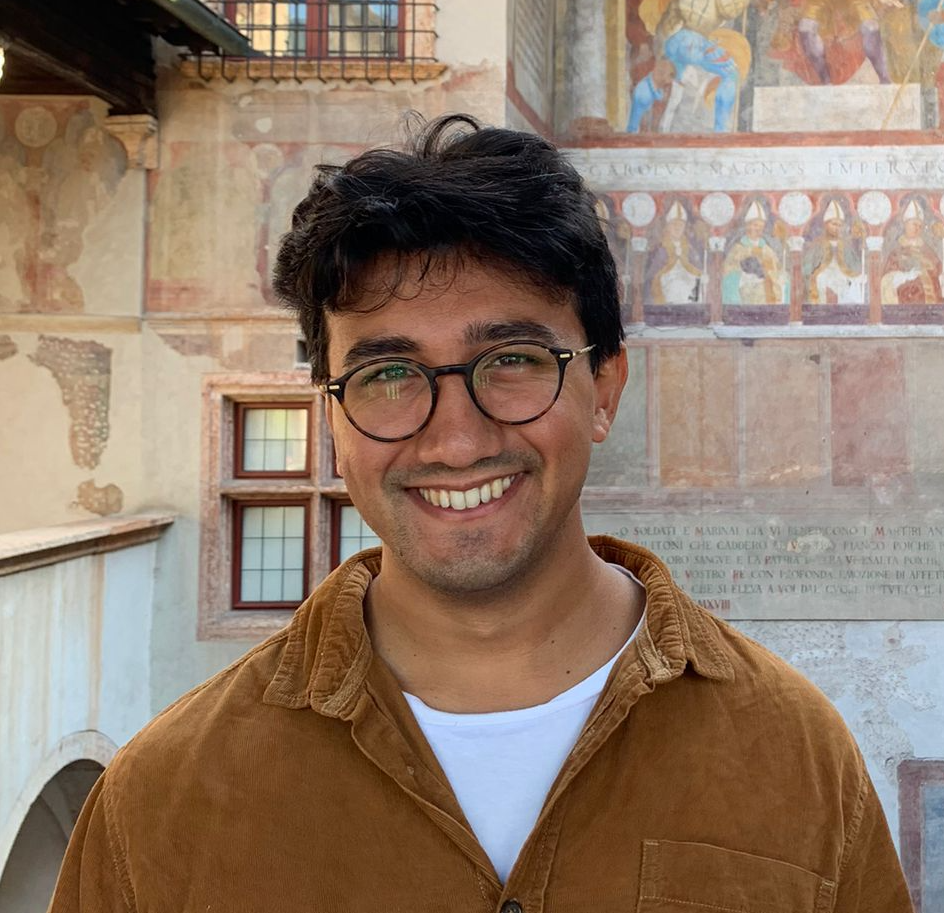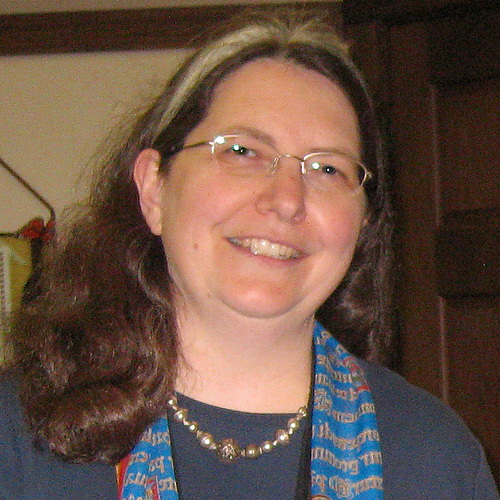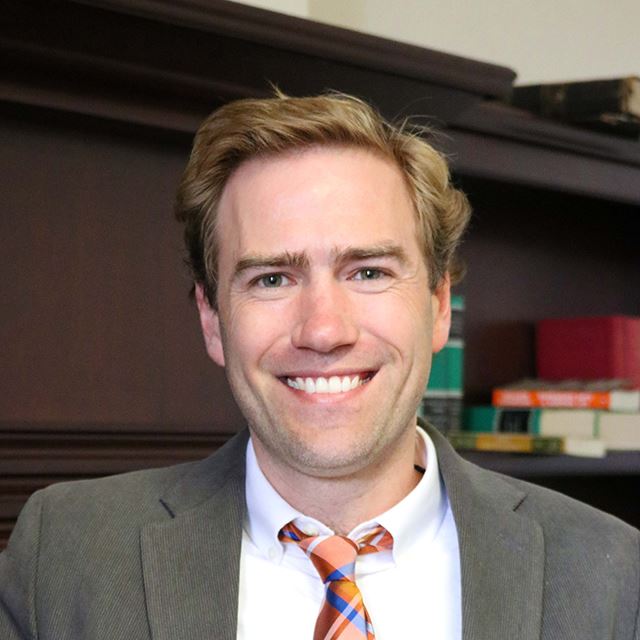SOCIETY FOR THE HISTORY OF DISCOVERIES VIRTUAL LECTURE SERIES The Society for the History of Discoveries sponsors periodic virtual lectures featuring speakers who present interesting results they have found in resent research. The illustrated lectures often give participants a preview of soon to be published information. All SHD members receive advance email notice of the lectures, but guests also are welcome to register so that they will receive the necessary links to an online site. Here is a look at some of the recent Virtual Lectures. (There is no charge for Virtual Lectures.) |
2024
SEPTEMBER
Dr. Mylynka Kilgore Cardona, Associate Professor of History at Texas A&M University-Converse The Six (?) Lives of Alexine Tinne
The Six (?) Lives of Alexine Tinne
Dr. Kilgore Cardona's presentation is based on a manuscript-in-process on the life (and afterlife) of Alexandrine “Alexine” Tinne (1835-1869), a Dutch woman who traveled and explored the Nile River and its tributaries (among other places) in the 1850s and 1860s. This work looks at the many roles ascribed to her because of her class and gender. The title refers to the different “lives” she inhabited depending on who was talking/reporting about her and her time in Africa. In her life, she was portrayed as a wealthy “lady traveler”, a brave adventurer, a “cracked” madwoman, and an explorer. In death, Tinne became a martyr and cautionary tale. In her afterlife, depending on century and target audience, she was an abolitionist, a New Woman, an imperial mother, an explorer, a feminist, a fool who [SPOILER ALERT!] got herself killed… The speaker's goal with this lecture/workshop is to talk through some of her writing/organization of the book, to get out of my own head, and to glean insights and perspectives on this work from SHD members.
MARCH
Gianamar Giovannetti-Singh, Lumley Research Fellow in History at Magdalene College and a Leverhulme Trust Fellow in the Faculty of History, University of Cambridge.
The Tartar Moment: Martino Martini and the Globalization of Chinese Cosmopolitics
The Manchu conquest of China transformed the sciences, politics, and their relationship to each other, in the early modern period. The “Tartar war” between the Ming dynasty (1368-1644), peasant rebels, and the Manchus—a Tungusic population from northeast Asia—was experienced by several Jesuit missionaries in China. During the unstable interregnum, Jesuits sought patronage from disparate factions, offering their astronomical expertise to help various contenders secure the “Mandate of Heaven” to rule legitimately over China. Based on their experiences in China, Jesuits came to view Chinese “cosmopolitics”—that is, the entanglement of humanity and the cosmos—as a resource to solve urgent problems of social order in a crisis-stricken Europe. Between 1653 and 1658, the missionary Martino Martini (1614-1661) was tasked with promoting the China mission in Europe, where he represented the new, Manchu-led Qing dynasty (1644-1912). Based on their experiences in China, Jesuits came to view Chinese “cosmopolitics”—that is, the entanglement of humanity and the cosmos—as a resource to solve urgent problems of social order in a crisis-stricken Europe. Between 1653 and 1658, the missionary Martino Martini (1614-1661) was tasked with promoting the China mission in Europe, where he represented the new, Manchu-led Qing dynasty (1644-1912).
missionaries in China. During the unstable interregnum, Jesuits sought patronage from disparate factions, offering their astronomical expertise to help various contenders secure the “Mandate of Heaven” to rule legitimately over China. Based on their experiences in China, Jesuits came to view Chinese “cosmopolitics”—that is, the entanglement of humanity and the cosmos—as a resource to solve urgent problems of social order in a crisis-stricken Europe. Between 1653 and 1658, the missionary Martino Martini (1614-1661) was tasked with promoting the China mission in Europe, where he represented the new, Manchu-led Qing dynasty (1644-1912). Based on their experiences in China, Jesuits came to view Chinese “cosmopolitics”—that is, the entanglement of humanity and the cosmos—as a resource to solve urgent problems of social order in a crisis-stricken Europe. Between 1653 and 1658, the missionary Martino Martini (1614-1661) was tasked with promoting the China mission in Europe, where he represented the new, Manchu-led Qing dynasty (1644-1912).
2023
FEBRUARY
Prof. Victoria Morse
Making the Invisible Visible: The City Maps of Opicino de Canistris
Opicino de Canistris (1298-ca.1354) is well known for his elaborately layered images that combine a wide range of map types with symbolic and textual information. In addition to his two highly visual autograph manuscripts, he was the author of several earlier surviving treatises, two of which are known currently.
These manuscripts are often studied separately from the autographs, in large part for biographical reasons: Opicino himself described a significant crisis (variously interpreted by scholars) that divided his earlier from his later work. There are, nevertheless, continuities of interest between the treatises and the maps in the autographs. This talk will focus on the especially clear case of his portrayals of the city of Pavia, exploring how his later mapping of the city grew out of and relates to the textual mapping he had written earlier.
APRIL
Dr. Cameron Strang, Associate Professor of History, University of Nevada, Reno
Runaway Pathfinders and American Exploration

Many runaway slaves in the antebellum United States ventured into distant lands with the intent of acquiring knowledge about the places and peoples they encountered. These pathfinders pursued exploration primarily as an intellectual strategy for liberating themselves and their kin. Yet while some fugitives did seek and report discoveries, they also faced distinct challenges. Rather than being part of national or international communities with wide access to geographical knowledge, enslaved people emerged from relatively isolated communities where slavers deliberately kept them in ignorance. Fugitives also had to traverse and investigate a carceral landscape in which the nation’s legal system mandated their arrest and most of the population stood to profit from their capture. And rather than boast publicly about the knowledge they acquired, fugitives usually kept information about new routes and allies a closely guarded secret. Such idiosyncrasies did not make fugitives’ journeys of discoveries something other than true exploration. Instead, this talk argues, they allow us to question what we think we know about the performers, practices, and goals of American exploration on the whole.rica and the Caribbean. He is currently working on a new history of American exploration.
SEPTEMBER
Dr. Daniella McCahey, Texas Tech University 
Gender and Antarctic Science and Exploration
Long conceptualized as a “world of men,” where stalwart scientists and daring adventurers committed stunningfeats of bravery and endurance in search of knowledge, Antarctica was generally off limits to women until 1969, when they began slowly being integrated into various National Antarctic Programs. The men who did go there in earlier periods are still praised for exemplifying Western “manly” virtues. Antarctic bases created a culture that simultaneously reveled in the all-male dimension of their lives but were also obsessed with the specter of the absent women. This led to a circular justification for women’s continued exclusion; that they would disrupt the homosocial culture necessary for cohesive life on base and in the field. Today, this cultural legacy continues to create an atmosphere rife with sexual harassment and assault.
2022
FEBRUARY
Carla Rahn Phillips, SHD Fellow and Professor Emerita, University of Minnesota
Can We Define Ideal and Idealized Types of Explorers? A Work in Progress
APRIL
Matthew H. Edney, SHD Fellow, Osher Professor in the History of Cartography (University of Southern Maine) and
Director of the History of Cartography Project (University of Wisconsin)
Empire and History, Maps and Discovery, 1775-1860
The systematic study of map history first emerged in Paris in the 1830s as an extension of the history of geography and discovery, a field that had itself cohered in its modern form only after 1775. This presentation explores the use of early maps by early historians of geography, such as James Playfair (1808) and Conrad Malte-Brun (1810), and how scholars such as Alexander von Humboldt, Ramón de la Sagra, Edme François Jomard, and the visconde de Santarém had by 1840 turned a sporadic interest in early maps into l’histoire de la cartographie.

SEPTEMBER
Paolo Chiesa, University of Milan, Italy
Hearsay on America (and Ethiopia) around 1340
New findings are emerging from the study of the (still unpublished) Cronica universalis by Galvaneus de la Flamma, a work written in northern Italy around 1340. Within the work, there is a lengthy geographical section devoted to several exotic regions. In addition to pieces of information depending on traditional sources, Galvaneus also reports unpublished news from oral sources available to him. In particular, Galvaneus mentions a land called Marckalada, located west of Greenland, spoken of by sailors: This land is recognizable as the Markland mentioned by some Icelandic sources and identified by scholars as some part of the Atlantic coast of North America. This is the first mention of the American continent in the Mediterranean region. Furthermore, Galvaneus reports news about an embassy from Ethiopia to Western Europe, which occurred around 1314. He details Ethiopia as a Christian, wealthy, and well-organized country, in a very different way from the traditional image of a wild and uncivilized land. Much evidence indicates that Galvaneus receives this news from Genoa; this opens new perspectives on the geographical knowledge that circulated in Columbus's city one hundred and fifty years before his voyage.
2021
FEBRUARY
Professor Gayle K. Brunelle
Monopolizing Commerce and Colonization: The Uses and Abuses of French Royal Commercial Companies
APRIL
Chet Van Duzer
The Origin of the Mythical Island of Brazil on Early Nautical Charts
JUNE
Professor Jordana Dym
Hiram Bingham in the Footsteps of Simón Bolívar, from Caracas to Bogota, 1906–1907
